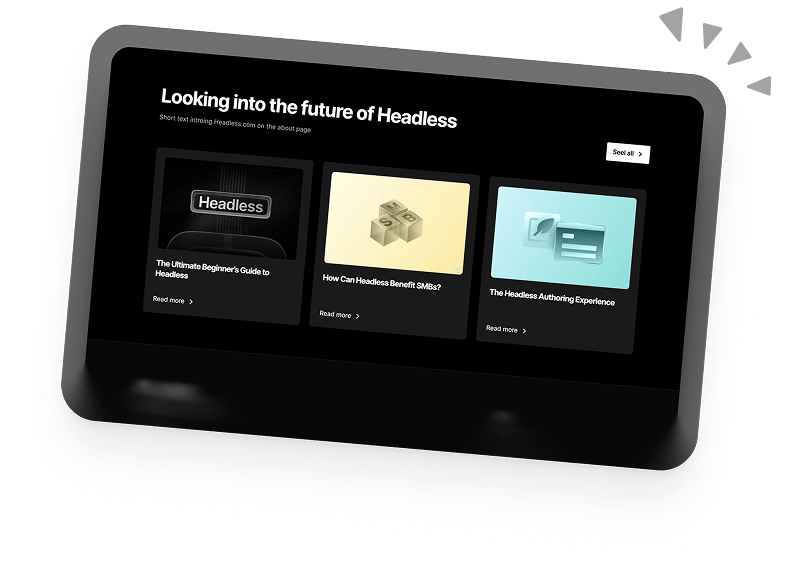6 Ways Artificial Intelligence is Reshaping B2B Marketing
AI has fundamentally altered modern marketing efforts. With its innovative capabilities, AI is shaking up the B2B sector, with visionary marketers seeking to capitalise on its potential. According to Forbes, 83% of early AI adopters have already achieved either significant (30%) or moderate (53%) improvements.
Understanding AI’s potential and perks may help B2B enterprises capitalise on this technological breakthrough instead of becoming intimidated by it. Nowadays, there is a growing need for B2B marketers to embrace the advent of AI.
Everstring indicates that only 13% of B2B marketers are very confident in their knowledge of AI. In comparison, the remaining 55% are somewhat confident, and the remaining 33% are not confident in their knowledge.
Customer Personalisation
Customers want companies to understand their specific requirements and preferences. And they are willing to completely shun a brand if it does not live up to their standards. Over 40% of customers, according to Accenture’s research, switched brands due to issues with trust and customisation. Generic sales pitches are ineffective, but establishing a connection with customers can generate high levels of engagement.
However, personalisation requires significant effort, as 63% of digital marketing leaders continue to have difficulty delivering personalised experiences to their customers.
When it comes to personalisation, AI technology introduces an unprecedented shift in B2B marketing . Using artificial intelligence, B2B organisations can provide more relevant and timely content for their clients across several channels, including websites, email marketing, social media posts, videos, and more.
In this context, AI enables B2B marketers to learn about customer tastes and create relevant content that is catered to them.
Businesses can more successfully conduct targeted marketing efforts when they segment their consumer base. AI enables digital marketers to customise their efforts on an individual basis, as opposed to relying on traditional target groups. Applying the power of artificial intelligence to enhance customer personalisation in this way can drastically increase levels of engagement and conversion.
Lead Generation
Businesses that invest in artificial intelligence enjoy a significant increase in their return on investment. McKinsey found that businesses using AI lead-generation technologies witnessed a 15- 20% improvement in sales productivity and a 20% increase in order management throughput.
Due to AI’s extensive scope, it can quickly collect more data from diverse platforms, including websites, social media channels, and contact databases. AI can analyse vast quantities of data in real-time without becoming tired like human analysts and doesn’t suffer from information overload.
AI fills the gap between the sales team and prospective customers by selecting the most relevant marketing targets. Once AI is actively included in a sales process, it can boost the number and quality of leads produced while lowering the amount of time wasted on dull and repetitive activities.
Furthermore, AI can identify the most relevant patterns in data, making observations that humans might not make. For instance, by utilising AI and Machine Learning (ML), it is possible to identify and target lookalike audiences on a massive scale. Because the AI observes and analysed the patterns in your traditional audiences, it can extract insights and provide information on leads that are the best fit for your marketing.
In a nutshell, AI helps remove a significant number of the headaches and obstacles associated with lead generation by using the data already in your possession. It is the same as having an analyst on your team whose sole responsibility is to look for insights and patterns.
Customer Insights
Overall, developing realistic buyer personas and ideal customer profiles (ICP) is an essential step for companies that want to use customised targeting in their sales funnel. According to Gartner’s AI and ML Development Strategies Survey, 40% of firms cited customer insights as their primary motivation for using AI technology.
In conjunction with AI, social listening and analysis technologies can assist organisations in accomplishing these goals. You may, for instance, obtain insight into the pain points and purchase patterns of your customers, or the people your rivals are pursuing. All of this information may be put to use to bolster buyer personas and build individualised experiences. When organisations have correct buyer personas and ICPs, they are in a position to contact both new consumers and current customers with the appropriate material at the appropriate time.
Hence, AI is reshaping our pre-established assumptions of what a customer wants in a way that goes beyond generalisations and personas that are only vaguely mapped.
Customer Service
For any successful B2B organisation, providing excellent customer service is crucial to cultivate healthy relationships with clients.
But how can you provide individualised support across multiple channels to each of the hundreds of accounts currently in your sales funnel? Acknowledging the potential of these cutting-edge technologies, 84% of digital marketing leaders believe that AI and ML (machine learning) enhance the marketing function’s ability to deliver real-time, personalised customer experiences.
Automating customer service is currently the most common application of artificial intelligence in businesses today. AI applications such as chatbots and interactive voice response (IVR) systems are already in use at both pre-and post-sale customer service touchpoints. These systems can handle transactional requests, order tracking, account updates, and a wide variety of other tasks.
Agents are freed up to focus on customer inquiries and services that require more problem-solving and empathy while they delegate less complex tasks to AI. Automated chatbots can answer straightforward inquiries, leaving tasks that require social aptitudes to humans. As a direct consequence, these clients receive a higher level of attentive service, which plays a significant role in developing satisfying relationships with clients.
Scheduling with AI insights
If you post your content at the wrong moment, all the work you put into optimising it and getting it ready for publication may have been for nothing. AI comes into play at this point, maximising client engagement by ensuring that information is published at the precise moment it should be. AI monitors customer engagement data, providing recommendations for the optimal times and platforms/devices to post content.
On top of this, when releasing content, marketers need to consider more factors than just time. The platforms they publish on, and the devices they optimise for are both significant elements to consider. This makes AI so beneficial. Rather than depending on speculation, analytical tools can be used to identify precisely which platforms and devices targeted clients are using. This eliminates the need for guesswork.
As a general rule, the afternoon and evening are the greatest times to post material on social media platforms and blogs. In marketing, sending emails first thing in the morning is ideal. Nevertheless, this can vary from business to business.
Rather than guessing general timeframes, AI can determine the ideal publication times down to the minute by monitoring the data and behaviours of customers on a company’s own website.
In addition, automated publication of information is made possible by scheduling technologies driven by AI. In a survey conducted by Statista in February 2022, respondents indicated that 32 % of their marketing automation was enhanced with artificial intelligence to personalise offers and emails, as well as for paid advertising.
Downsides of AI in marketing
Notwithstanding the multiple benefits provided by AI, some drawbacks still hinder its widespread implementation. Most of the time, AI is constrained only by the quantity and quality of information at its disposal. Due to the correlation between data abundance and AI performance, data is the primary resource for every AI application. The nature of the system itself imposes fundamental restrictions on using AI in marketing. These limitations stem mostly from the model’s inputs, the model’s accessible algorithms, and the actions it may drive.
When a B2B marketing department implements AI solutions, linking the disparate, unconnected systems that make up the marketing stack may be a significant challenge. As a result of the inability to align the data and integrate it within a coherent flow, a great deal of information is lost. In the absence of a link between the data points, evaluating certain aspects in isolation is impossible. This also implies that you will not be able to act in real-time or very close to it because of the time it takes to acquire the data.
Bottom Line
AI displays an unprecedented potential to push the limits of our ability to read and respond to consumers’ needs, automate repetitive processes and enhance our data analysis processes. Overall, B2B marketers will benefit greatly from the ability to deploy more intelligent, intuitive, and effective strategies.
Book a 30-min Introduction Call
Let's jump on a quick intro call We'll break down your project, and pinpoint exactly how we can help.



Our clients  Holaa! love working with us see their stories below!
Holaa! love working with us see their stories below!






